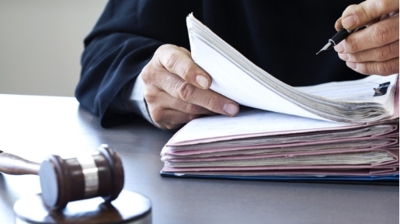
Shoplifting Attorney in Rancho Cucamonga
Charged with Shoplifting? Don’t Risk Your Future
Shoplifting is a serious offense in California, including Rancho Cucamonga. The California Penal Code 459.5 defines shoplifting as entering a commercial establishment with the intent to steal merchandise valued at $950 or less. If you're facing these charges, the consequences can be daunting, potentially leading to fines, community service, or even jail time.
At Brian Skibby Law Office APC, we understand the complexities of theft cases in Rancho Cucamonga. With over 25 years of experience, we offer trial-tested legal defenses tailored to your unique situation. Our firm's close relationships with local judges and prosecutors give us insight into how these cases are typically handled within the local legal system.
An experienced shoplifting attorney in Rancho Cucamonga can help you fight the charges. Call (909) 695-0095 now or contact us online to schedule your free legal consultation today.
Understanding Shoplifting Charges in California
In California, the crime commonly referred to as "shoplifting" is specifically defined under Penal Code Section 459.5 PC, titled "Shoplifting." This statute was created as part of Proposition 47 in 2014, which reclassified certain non-violent felonies as misdemeanors.
Before Proposition 47, entering a store with the intent to steal, regardless of the value, could often be charged as burglary (a felony). Now, PC 459.5 provides a distinct definition for shoplifting that is generally a misdemeanor.
A person is guilty of shoplifting under PC 459.5 if they:
- Enter a commercial establishment. This means a store, shop, or any other place of business open to the public.
- The establishment is open during regular business hours. If the establishment is closed, or if the entry is outside of regular hours, the charge might revert to burglary (PC 459), which remains a felony.
- With the intent to commit larceny. This means you must have had the specific intent to steal merchandise.
- The value of the property taken or intended to be taken does not exceed nine hundred fifty dollars ($950). This is the crucial threshold. If the value of the property is $950 or less, the crime is classified as shoplifting (PC 459.5). If the value exceeds $950, the crime is typically grand theft (PC 487), which can be charged as a felony.
Penalties for Shoplifting in California
The penalties for shoplifting and other theft-related convictions in California vary significantly based on the specific charge, the value of the property, and your prior criminal history. Even a misdemeanor conviction can have lasting negative effects.
For Misdemeanor Shoplifting (PC 459.5) and Petty Theft (PC 484/488):
- Jail Time: Up to six (6) months in county jail.
- Fines: Up to $1,000.
- Summary (Informal) Probation: Typically for 1-3 years, with conditions such as community service, restitution, or attending a theft diversion program.
- Civil Demand Letter: Store owners frequently send a civil demand letter (under California Penal Code 490.5 PC), requesting restitution for the stolen or damaged items, plus an additional penalty fee of up to $500. It's crucial to discuss these letters with your shoplifting attorney in Rancho Cucamonga before responding, as paying for it does not necessarily absolve you of criminal liability.
How We Approach Shoplifting Criminal Defense
Our approach is client-focused, ensuring personalized attention and tailored strategies for every case. When you work with our shoplifting criminal attorney in Rancho Cucamonga, you receive direct, hands-on support throughout the legal process.
Here’s how we can help:
- Thorough Case Assessment: We meticulously analyze the details of your case to identify weaknesses in the prosecution’s claims and develop a strong defense strategy.
- Relationships with Local Judges & Prosecutors: Our established connections within the Rancho Cucamonga legal community can be advantageous in negotiating favorable terms.
- 24-Hour Emergency Assistance: We’re available whenever you need us, providing peace of mind and prompt assistance.
Our legal team delves deeply into each case, reviewing surveillance footage, witness statements, and store policies to craft a defense strategy that aligns with the facts and the law. We are proactive in seeking out diversion programs and negotiating plea bargains that might reduce or dismiss charges altogether, particularly for first-time offenders.
Rancho Cucamonga Legal Process for Shoplifting Charges
Navigating the legal process can be challenging, but understanding what to expect can alleviate some stress. Shoplifting charges are typically heard in the San Bernardino County Superior Court.
Defendants should be prepared for:
- Arraignment: Your first court appearance where charges are formally read, and a plea is entered.
- Negotiation & Plea Bargaining: Our skilled criminal defense team works to negotiate plea deals that could lessen charges or penalties.
- Potential Sentencing: If convicted, penalties may vary based on the specifics of the case and prior criminal history. Options may include diversion programs that our team can help navigate.
Being informed about the local legal system's nuances, including how prior offenses may weigh on current charges, is crucial. The San Bernardino County system offers various pre-trial diversion programs, and understanding which are available can be pivotal in your defense strategy. Our knowledge of this locality ensures we can guide you effectively through these procedures.
The moment you reach out, we provide a comprehensive defense through every stage of the legal process.
Take the Next Step with Brian Skibby Law Office APC
If you're facing shoplifting charges in Rancho Cucamonga, don't navigate the complexities alone. Our dedicated team at Brian Skibby Law Office APC is here to provide the guidance and defense you need to protect your future. With our extensive experience and strong local relationships, you can rely on us for straightforward legal advice and aggressive representation.
Take advantage of our free consultation by calling (909) 695-0095. Find peace of mind knowing you have a committed shoplifting lawyer in Rancho Cucamonga prepared to fight for you.

When Results Matter
See Our Winning Case Results
-
Charges Dropped Assault with a Deadly Weapon
-
Dismissal on All Counts Attempted Murder
-
Case Dismissed Burglary
-
Case Won DMV Hearing
-
Case Won DMV Hearing
-
Case Won DMV Hearing
Frequently Asked Questions
What Are the Penalties for Shoplifting in Rancho Cucamonga?
Shoplifting is typically a misdemeanor punishable by up to 6 months in jail and/or a $1,000 fine. However, prior theft convictions can elevate the charge to a felony. Courts may also impose community service or restitution. Additionally, civil lawsuits from retailers are possible. Legal representation is essential to minimize both criminal and civil consequences.
Can Shoplifting Charges Be Dismissed?
Yes. Charges may be dismissed if your attorney proves lack of intent, challenges how evidence was obtained, or identifies procedural errors by law enforcement. Each case is unique, so a thorough review is key to building a dismissal argument or negotiating a lesser charge.
What Should I Do Right After a Shoplifting Arrest?
Stay calm, do not speak to law enforcement without a lawyer, and call a defense attorney immediately. Avoid discussing the case with friends, family, or on social media. Write down everything you remember and collect witness contact information—these details help your lawyer prepare your defense.
How Soon Should I Contact a Shoplifting Attorney?
Immediately. Early legal intervention allows us to gather evidence, protect your rights, and begin negotiating with prosecutors. At Brian Skibby Law Office APC, we offer prompt consultations to discuss your case and begin your defense strategy without delay.
Will I Have a Permanent Criminal Record?
A conviction for shoplifting may result in a criminal record. However, an attorney can pursue options like diversion programs or later file for expungement, depending on your case outcome and eligibility.
Are First-Time Offenders Treated Differently?
Yes. First-time offenders may qualify for alternative resolutions such as diversion, which can avoid jail time and keep your record clean. Your attorney will push for these options if applicable.
Can I Be Sued Civilly for Shoplifting?
Yes. In addition to criminal charges, stores may pursue a civil lawsuit to recover the cost of the stolen merchandise and additional statutory damages. Your attorney can help address both the criminal and civil aspects of the case.
Do Minors Face Different Consequences for Shoplifting?
Minors are typically handled through the juvenile justice system, which focuses more on rehabilitation than punishment. A defense attorney can help protect a minor’s record and explore diversion programs suited for youth offenders.


Stay In The Know
-
What are my chances of getting a misdemeanor case dismissed?In addition to having a skilled lawyer argue that the case should be dismissed for various reasons, the County of San Bernardino offers a pretrial diversion program called RISE. This program is not guaranteed to all defendants. You must first be charged with an eligible misdemeanor crime and secondly, you must be found suitable by the court to participate in the program. Your attorney is the key factor to argue your suitability for the program. The program last for six months and during that time a defendant must complete educational classes, pay fees and restitution and must complete some community service. Once the program is completed, then the case will dismissed from the defendant’s record.
-
How do I restore my rights after pleading guilty or being convicted at trial?Because simply obtaining an expungement does not restore your rights you previously lost, you must file for a Certification of Rehabilitation. A Certificate of Rehabilitation is a process that if granted, indicates to the world that you are officially rehabilitated and thus restore many of your constitutional rights. If the court agrees that you are rehabilitated, then your Certificate becomes an automatic application for a Pardon. After 7, 9, or 10 years have passed since the petitioner was released from custody or sentenced or on his or her release on to probation or parole, then a petitioner can file a “cert.” The process is somewhat elaborate, but the bottom line is that a petition is filed with the Superior Court in the county in which you reside and the DA’s office immediately starts their investigation. In many cases, the DA’s office does little or no investigation at all. A court date is set and a hearing is conducted to determine if the petitioner is rehabilitated? If this hearing is successful, your certificate becomes an application for a pardon. In the meantime, the Department of Justice, FBI, and several other agencies change your records to note that you are rehabilitated. In some cases, you do not have to register as a sexual offender or a drug offender anymore. If your pardon is eventually granted after being sent to the Governor, then you will now be able to vote and own a firearm. The only exception is that you cannot have your pardon granted if you have 2 or more offenses. Likewise, your right to have a firearm cannot be restored if you were convicted of a felony with the use of a dangerous weapon.
-
What is an Expungement?After someone has pleaded guilty and been placed on probation and has either completed probation or else has been discharged prior to termination of probation, a defendant has the right to withdraw his plea of guilty. The defendant files a motion to request an expungement and it is sent to the probation department. They review the case and serve the DA. Either the DA or probation can oppose the motion. If granted the verdict would be set aside or you plea would be withdrawn and your case dismissed. There are some problems with this process. First, the DA’s office can still use these charges against you if you are charged with a subsequent offense. In order to file an expungement, you cannot presently be on probation for another offense. Although you are not required to disclose the offense in any private employment situation, you must disclose the charge in a direct questionnaire to run for public office, if you are contracting with the State Lottery or if you apply for any state or local license. What this means is if you want your state contracting license or real estate license or want to become a lawyer, doctor or accountant, you must disclose this offense. An expungement does not restore one's right to own a gun or vote and is statutorily denied to many sex offenders.
-
 Effects of a Domestic Violence Conviction on Custody RightsCriminal DefenseRead Article
Effects of a Domestic Violence Conviction on Custody RightsCriminal DefenseRead Article -
Understanding the IID Requirements in Rancho CucamongaRead Article
-
California Felony Probation and State Prison ExpungementsCriminal DefenseRead Article
-
The Division of Juvenile Justice (DJJ) will close down June 30, 2023Criminal DefenseRead Article
-
Why Hire a Criminal Defense Attorney for Misdemeanor Case?Criminal DefenseRead Article
-
The Rancho Cucamonga Court Remains the Most Convenient Court to Help the Public in San Bernardino CountyCriminal DefenseRead Article
